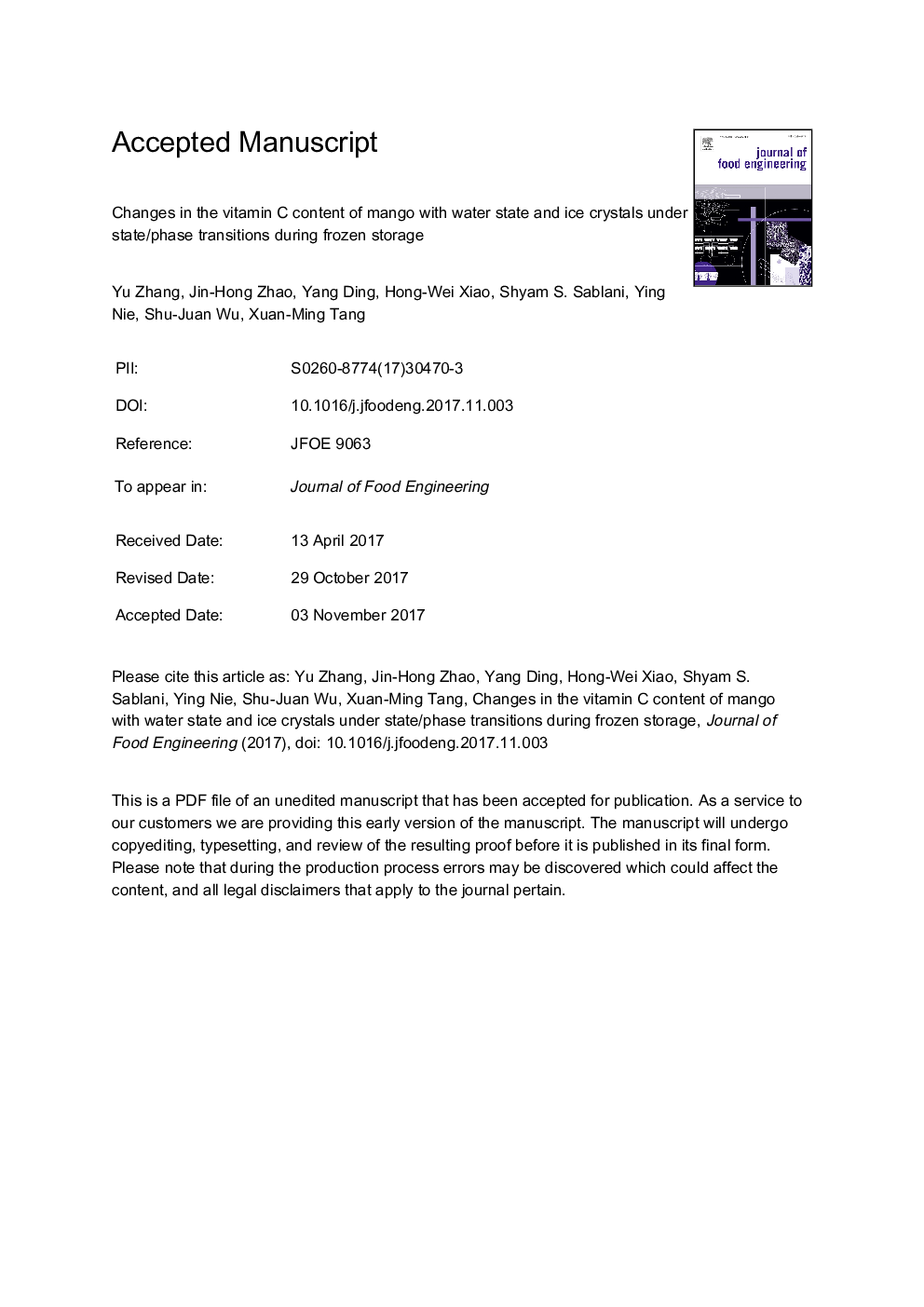| Article ID | Journal | Published Year | Pages | File Type |
|---|---|---|---|---|
| 6664793 | Journal of Food Engineering | 2018 | 21 Pages |
Abstract
The relationship of vitamin C content with water state and ice crystals of mango was investigated under different state/phase transitions (temperature fluctuations) during frozen storage. The temperature of frozen mango was modulated from â65 °C for different states, namely, rubbery (T > Tmâ²), partially freeze-concentrated (Tgâ²â²Â < T < Tmâ²) and glassy states (T < Tgâ² and Tgâ²Â < T < Tgâ³). The results revealed that in the glassy state, frozen mangoes had less water mobility, freezable water, and smaller ice crystals, resulting in higher vitamin C compared with samples under other conditions. The vitamin C content continued to decrease during frozen storage even in the glassy state without temperature fluctuations. Furthermore, there was a significant decrease in the vitamin C content in frozen mangoes subjected to temperature fluctuations above Tgâ³ and Tmâ², depending on the water mobility, amount of freezable water and size of ice crystals over time.
Related Topics
Physical Sciences and Engineering
Chemical Engineering
Chemical Engineering (General)
Authors
Yu Zhang, Jin-Hong Zhao, Yang Ding, Hong-Wei Xiao, Shyam S. Sablani, Ying Nie, Shu-Juan Wu, Xuan-Ming Tang,
